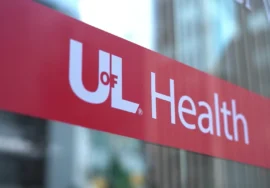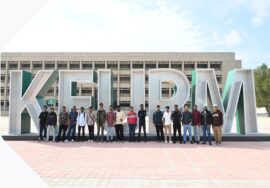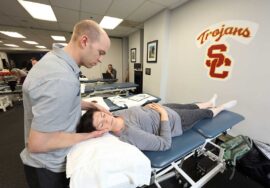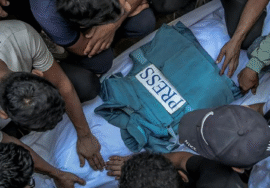
Muhammad Saad – Ophthalmology Researcher & Clinician at Al-Shifa Trust Eye Hospital
Introduction: Bridging Clinical Care with Research
In the field of medicine, particularly ophthalmology, being a clinician and a researcher simultaneously is both demanding and deeply influential. Muhammad Saad, Medical Doctor and Ophthalmology Resident at Al-Shifa Trust Eye Hospital, Rawalpindi, exemplifies the dual path of clinical practice and scientific inquiry. His research covers a range of vision-related disorders, eye disease epidemiology, and surgical outcomes. With 17 publications, over 500 “reads” on ResearchGate, and active involvement in subspecialties like retina, glaucoma, and corneal disease, Saad is building a portfolio that’s contributing meaningfully to eye health in Pakistan and beyond.
Early Career & Clinical Role
Muhammad Saad currently serves as an Ophthalmology Resident at the Department of Ophthalmology, Al-Shifa Trust Eye Hospital, Rawalpindi. In this role, he is actively involved in patient care diagnosing, managing, and treating eye diseases. His clinical expertise spans diseases such as cataract, glaucoma, retinal detachments, and corneal pathologies. This direct clinical exposure gives him insight into not only treatment but also the real, often unmet, problems patients face: delays in seeking care, complications, outcomes that depend heavily on timing, and resource constraints.
Research Focus & Areas of Expertise
According to his ResearchGate profile, Saad’s research interests are wide and reflect both clinical and public health dimensions of ophthalmology. His listed areas of expertise include:
- Clinical Ophthalmology
- Optometry and Vision Science
- Eye Diseases
- Glaucoma
- Retinal Diseases
- Cataract Surgery
- Optical Coherence Tomography (OCT)
- Corneal Diseases
These areas show that he is not confined to one narrow niche but is working across multiple fronts: surgical procedures, imaging modalities, disease management, and diagnostics.
Recent Publications & Clinical Impact
Saad has authored or co-authored at least 17 published studies, and he has accumulated around 577 “reads” on ResearchGate, which is a measure of how many times his work is viewed.
Some notable recent works include:
- Effect of Macular Detachment Duration on Visual Outcomes in Macula-On and Macula-Off Rhegmatogenous Retinal Detachment (April 2025) he contributed to research about how delay in repair of retinal detachment affects vision.
- Evaluating the Efficacy of Artificial Intelligence-Driven Chatbots in Addressing Queries on Vernal Conjunctivitis (Feb 2025) extending ophthalmic practice into patient education and using AI tools.
- Spectrum of metastatic tumours to orbit over the last twenty years in a tertiary care eye hospital a retrospective study assessing orbital metastases over two decades at his hospital.
- Outcomes of 23-Gauge Pars Plana Vitrectomy in Various Vitreoretinal Diseases surgical outcomes in vitrectomy procedures.
These works show a blend of surgical, diagnostic, epidemiological, and technological perspectives. They reflect a researcher who is alert to both immediate clinical needs (e.g. outcomes of surgery) and evolving opportunities (e.g. patient education via AI).
Surgical & Diagnostic Techniques
Muhammad Saad also has skills in imaging modalities and surgical techniques. Specifically, his listed expertise in:
- OCT (Optical Coherence Tomography) for assessing retinal and structural integrity in eye diseases.
- Cataract surgery essential in reducing vision loss in low-resource settings.
These capabilities suggest that he not only participates in research but likely in hands-on clinical operations including diagnostics, imaging, surgeries, follow-ups, and possibly mentoring junior residents or students.
Challenges in Resource Context & Healthcare Delivery
Operating within Pakistan’s healthcare system, particularly in a specialized field like ophthalmology, carries specific challenges. Hospitals like Al-Shifa Trust Eye Hospital serve large volumes of patients, sometimes with limited resources. Issues include late presentation (patients coming only when disease is advanced), constrained access to advanced imaging or surgical tools in some cases, follow-up challenges, and socioeconomic barriers for patients.
Saad’s research, which examines outcome timings (as in retinal detachment), or the impact of dry eye syndrome, or comparative studies in cataract biometry, reflect these real-world challenges. They indicate not just academic curiosity but a sensitivity to improvements in care that matter on the ground.
Intersecting Research with Innovation: AI and Digital Tools
A particularly forward-looking aspect of Muhammad Saad’s work is his involvement with studies that combine ophthalmic conditions and artificial intelligence or digital health tools. The Chatbot in Vernal Conjunctivitis article is a strong example addressing patient education and healthcare communication via technology, which can help close gaps where clinic access or clinician time is limited.
This is part of a new wave of clinician-researchers who are not only practicing medicine but actively exploring how tech can amplify care, reduce burden, and improve outcomes.
Publication Trends & Academic Growth
Though he has 17 publications now, the recent rate of publications suggests significant upward momentum. Many works from 2024–2025 indicate Saad is actively contributing to peer-reviewed literature with relevance both clinically and epidemiologically. The variety of topics from retinal outcomes to dry eye management, to orbital metastases and cataract surgery shows diversity. This diversity can be good for resilience, academic networking, and influence.
Readership (the “reads” metric on ResearchGate) also suggests others in ophthalmology and related fields are engaging with his work. While citations are not listed (at least not in the snapshot), building more citations typically follows once research visibility and impact grow.
Influence and Role in Training / Mentoring
As an Ophthalmology Resident and Medical Doctor, Saad is not only doing his own work but likely helping younger doctors, students, and possibly residents in training. Hospitals like Al-Shifa Trust often have teaching components. Based on his engagement and publication record, he may be contributing in mentoring roles guiding other physicians, collaborating with co-authors, or participating in peer review.
This dual role of clinician + researcher + trainer expands his impact beyond his own surgeries or papers; it contributes to a stronger ophthalmology community in Rawalpindi and Pakistan.
Future Directions & Potential Impact
Given his trajectory, several future directions seem probable and important:
- Expanding work in AI-assisted ophthalmology tools chatbots, predictive analytics, telemedicine, which are especially useful in underserved regions.
- Longitudinal studies of surgical outcomes (e.g. for retinal detachment repair outcomes, cataract surgery outcomes) that can influence national practice guidelines.
- Research in early detection of diseases like glaucoma and retinal disorders, possibly via advanced imaging, machine learning.
- Publishing in higher-impact international journals, increasing global collaboration.
- Increased involvement in public health eye care community screenings, awareness programs, prevention strategies.
If these follow, his contributions could help reduce vision loss burden, improve outcomes in surgical eye care, and modernize patient education in Pakistan and similar settings.
Recognition, Metrics, and Reach
While the citation count from the snapshot is “0,” reads are over 577. “Reads” on ResearchGate include those who view abstracts, download full texts, etc. That means what he’s producing is being accessed. Over time, that exposure often leads to citations, invitations to conferences, grants.
His network includes about 48 co-authors, suggesting good collaboration. Publishing diverse kinds of studies (clinical, surgical, technology) could help him reach interdisciplinary audiences.
Conclusion: Clinical Excellence + Research for Real Difference
Muhammad Saad, the MD and Ophthalmology Resident at Al-Shifa Trust Eye Hospital, represents a type of medical professional who is not satisfied with merely treating disease. He researches, measures, innovates, and seeks to bridge gaps in care. His mix of surgical skills, diagnostic mastery, research publications, and interest in innovation positions him as a rising figure in Pakistan’s ophthalmology sphere.
His work matters not just for academia, or for “papers,” but for patients for real lives seeing better, for vision restored, for better tools, quicker diagnosis, and more informed communication.
About Me – Muhammad Saad, SEO Specialist
While this profile spotlights Muhammad Saad, MD at Al-Shifa Trust, I want to share a bit about myself. I am Muhammad Saad, a professional SEO specialist and digital marketer based in Pakistan. My expertise lies in helping businesses improve their digital visibility, craft content that ranks, and convert visits into opportunities. You can view my portfolio at muhammadsaad.exytex.com.
Though our paths differ—him in restoring sight, me in boosting visibility—both are about impact: making things clearer, more accessible, and beneficial for communities.








